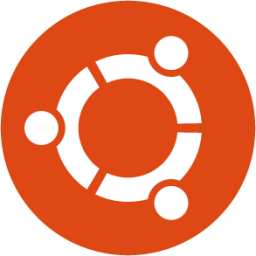Bron: artikel integraal overgenomen van blog.devops.dev
Origineel auteur: EKAMBAR KUMAR SINGIRIKONDA
Moving to the cloud presents several security challenges for enterprises, including protecting the organization from data breaches, misconfigurations, compliance issues and unauthorized access. Moreover, the dynamic nature of cloud environments, with resources being provisioned and de-provisioned on-demand, adds complexity to security management. Organizations should implement robust security measures such as encryption, access controls and regular security audits. Training employees on best practices for cloud security is crucial to mitigate risks and ensure data protection in the cloud environment.
These items should be top of mind.
Automation: The practice of DevOps promotes automation across the software development lifecycle, including security processes. By automating security tasks such as vulnerability scanning, code analysis and configuration management, DevOps teams can identify and address security issues early in the development process, reducing the risk of vulnerabilities in production environments. Furthermore, incorporating security into the DevOps pipeline allows for continuous monitoring and testing of security controls, ensuring that any vulnerabilities are quickly identified and remediated. This proactive approach to security helps to strengthen the overall security posture of cloud environments.
Continuous Monitoring: DevOps encourages continuous monitoring of cloud infrastructure and applications. Through monitoring tools and techniques, DevOps teams can detect security incidents in real-time, allowing for immediate response and remediation. This proactive approach helps mitigate potential security threats before they escalate into significant breaches. By continuously monitoring for any anomalies or suspicious activities, DevOps teams can also improve their incident response capabilities and minimize the impact of security incidents. This ongoing vigilance is essential in today’s dynamic threat landscape to protect sensitive data and maintain the trust of customers.
Infrastructure as Code: With the adoption of infrastructure as code (IaC), DevOps teams can define and manage cloud infrastructure using code. This enables consistent and repeatable deployments and enhances security by ensuring infrastructure configurations adhere to security best practices. By treating infrastructure as code, organizations can implement security controls such as encryption, access controls and network segmentation programmatically, reducing the risk of human error and misconfigurations.
Collaboration and Communication: DevOps fosters collaboration and communication between development, operations and security teams. By breaking down silos and encouraging cross-functional collaboration, DevOps ensures that security considerations are integrated into every stage of the software delivery pipeline. This collaborative approach helps align security objectives with business goals, enabling organizations to achieve a balance between innovation and risk management.
Security First: DevOps promotes an approach where security is integrated into the software development process from the outset. By embedding security practices such as secure coding principles, threat modeling, and security testing into the development workflow, DevOps teams can identify and address security vulnerabilities early in the development lifecycle, reducing the likelihood of security incidents in production. This proactive approach helps organizations save time and resources by preventing costly security breaches that could occur later in the software development lifecycle. Collaboration between development and security teams means DevOps can enhance overall organizational resilience to cyberthreats by fostering a culture of security awareness.
Compliance and Governance: DevOps helps organizations maintain compliance and governance standards in the cloud. By automating compliance checks and implementing security controls as code, DevOps teams can ensure that cloud environments adhere to regulatory requirements and internal policies. This reduces the burden of compliance management and enhances security posture. Furthermore, by continuously monitoring and auditing cloud environments, DevOps teams can quickly identify and remediate any compliance issues that may arise. This proactive approach to compliance and governance helps organizations avoid costly fines and penalties associated with non-compliance.
DevOps is critical in orchestrating enterprise-wide cloud security by promoting automation, continuous monitoring, infrastructure as code (IaC), collaboration, communication, shift-left security, and compliance and governance. By integrating security into every aspect of the software delivery pipeline, DevOps enables organizations to embrace the agility and scalability of the cloud while effectively managing security risks. As enterprises continue to use cloud technologies to drive innovation and growth, DevOps will remain essential in ensuring that security remains a top priority. By implementing DevSecOps practices, organizations can proactively address security concerns early in development, reducing the likelihood of vulnerabilities in production environments. This holistic approach to security enhances overall cybersecurity posture and fosters a culture of shared responsibility and accountability across teams.
